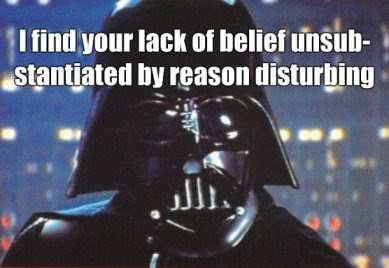
Dear friends and strangers,
It is no secret that with your upcoming elections you are facing some strange and interesting times. In many ways I feel like I am facing them with you. For one thing Rammstein kind of had a point – “We’re all living in America”. I watch the movies you make, I watch your sitcoms and your drama’s, your televangelists, your talk shows and your news programs. On a more personal level I have had the pleasure to get to know some of you personally through your blogs and through Facebook and that has been by far my favourite part. It was great to get past the preconceived ideas and stereotypes and get to know you for the real, interesting and complex people you truly are. It is for this reason most of all that I felt the need to share something with you. See I know a little something about the things you are worried about right now. I have been in a place similar to where you are at present and I have lived through some of the very things you fear most. Now let’s be clear, I would be the first to admit that it doesn’t mean I know exactly what you are feeling, after all I’m not you. So I’m not trying to preach to you or talk down to you. I also have no idea what your future will be like as I am no prophet or clairvoyant. I just want to share a part of my own experience and maybe, just maybe, it will be of some use to you.
See, I have been reading some of the concerns you have about your possible future and especially the work of people like Janet Folger and Focus on the Family paints a horrifically grim picture of your future under Democratic Party leadership. Now this has never been a political blog and I am not about to turn it into one. I have no intention of telling you who to vote for. This blog has been about matters of Christian faith and it is those concerns in particular that I wish to address.
 First, some background. This is me, a couple of decades a go, a happy little white boy living in Africa proudly supporting our very own “war on terror” as you can tell by my t-shirt. Things were pretty simple back then, in fact in many ways we in Apartheid South Africa had what most American Fundamentalist Christians dream of – Christianity was the state religion and everyone had to live according to Christian rules. Gays had no say. Abortion was illegal (there were a handful of exceptions but they were rare and for medical reasons mostly). Every day the national broadcaster featured Christian devotionals on both TV and radio. Sundays everyone went to church and again, there were church services on both national radio and TV. The advice columnist in the biggest and most popular family magazine in the country was a preacher and Christian counselor – back then if a teenager wrote in saying that he thought he was gay he was told that he wasn’t really gay and was referred to counseling. No evolution was taught in school. Bible classes were compulsory subjects even in High School. All forms of entertainment deemed obscene or blasphemous was heavily censored if allowed at all. (There was one adult magazine on the supermarket shelves and it was printed with stars over the “naughty parts”.) But then suddenly 1994 came around and everything changed. We got a brand new super liberal constitution. Abortion became legally and freely available without parental consent. Gays got the right to marry and adopt children. TV no longer just broadcast Christian devotionals and services but started giving equal time to Islamic, Hindu, Jewish, New Age and Traditional African religious programming. Our government no longer supported Israel and started supporting voicing support for Palestine instead. Suddenly nothing was censored and everything was freely available. In short we went from a fundamentalist’s dream to a fundamentalist’s nightmare.
First, some background. This is me, a couple of decades a go, a happy little white boy living in Africa proudly supporting our very own “war on terror” as you can tell by my t-shirt. Things were pretty simple back then, in fact in many ways we in Apartheid South Africa had what most American Fundamentalist Christians dream of – Christianity was the state religion and everyone had to live according to Christian rules. Gays had no say. Abortion was illegal (there were a handful of exceptions but they were rare and for medical reasons mostly). Every day the national broadcaster featured Christian devotionals on both TV and radio. Sundays everyone went to church and again, there were church services on both national radio and TV. The advice columnist in the biggest and most popular family magazine in the country was a preacher and Christian counselor – back then if a teenager wrote in saying that he thought he was gay he was told that he wasn’t really gay and was referred to counseling. No evolution was taught in school. Bible classes were compulsory subjects even in High School. All forms of entertainment deemed obscene or blasphemous was heavily censored if allowed at all. (There was one adult magazine on the supermarket shelves and it was printed with stars over the “naughty parts”.) But then suddenly 1994 came around and everything changed. We got a brand new super liberal constitution. Abortion became legally and freely available without parental consent. Gays got the right to marry and adopt children. TV no longer just broadcast Christian devotionals and services but started giving equal time to Islamic, Hindu, Jewish, New Age and Traditional African religious programming. Our government no longer supported Israel and started supporting voicing support for Palestine instead. Suddenly nothing was censored and everything was freely available. In short we went from a fundamentalist’s dream to a fundamentalist’s nightmare.Let me put it to you this way – what are the things you fear most about having Obama and the liberal left wing in charge? Having a black man in charge who chooses the interests of black people over that of white people? Having Muslims, socialists and communists in your government? Having a weakened military? Open borders? Nationwide gay rights regarding marriage and adoption? Going from a “Christian Nation” to a totally secular state? Well, I have had all that happen in my lifetime and I have been living with it for the past 14 years. Everything you fear and a couple of things that probably hasn't even occurred to you to fear has happened here so believe me, I get your concerns. We had the exact same ones and we had the same dark view of the future - people were stocking up on canned food and toilet paper like you wouldn't believe!
Well, it’s been 14 years. Here is what didn’t happen:
- Christianity didn’t become illegal. I’m not in a concentration camp and I can still attend any church I want to.
- Fundamentalist Christians aren’t getting persecuted. In fact it seems that Christian fundamentalism is gaining ground daily.
- Christianity didn’t get censored. Pastors, Dominees, Reverends, Bishops and Priests can still say whatever they like from the pulpit. Likewise, Christians can still say what they want in newspapers, magazines and on TV – even if it’s anti-gay or anti-abortion or anti-government.
- The Bible didn’t get banned. I can read from it, write about it and discuss it in any forum I wish.
- Home schooling is not illegal – in fact many parents take that route.
- The country didn’t collapse into an odd mix of Orwellian politics and moral anarchy and Satan worship (though you could probably find some South Africans with a more pessimistic outlook on this than I do.)
Here is what did happen:
- The kind of churches that people used to belong to for political or business reasons lost a lot of members, some even closed down. You know the kind I’m talking about, the kind of church you have to belong to if you want to fit in? Well when “Being Christian” was no longer equal to “fitting in” they just didn’t have much of a reason to exist it seems.
- Churches who offered their members something real and relevant started booming – Pentecostal and Charismatic mega churches actually arose for the first time.
- Christians still had freedom of expression under the super liberal constitution they weren’t crazy about BUT they had to start enduring challenge and debate for the first time. Sure, a pastor can still go on TV and say that gays are an abomination to God but he will have to share the podium with another pastor who may disagree with him. People now get to make more informed decisions on what they believe.
- Christians don’t get to enforce their moral standards using the law anymore. But then neither did the Apostles. Or Jesus for that matter…
- In short, Christianity had to sink or swim on its own with no help from the government.
So while I don’t know what your future will look like, I can with reasonable certainty tell you that those who try to tell you that there are only 2 possible outcomes – conservative Christian government or an evil Anti-Christ empire – are wrong. After all, if your faith has anything going for it, if what you believe is in any way real, then it shouldn’t need the president to prop it up and keep it going, right? (I believe that your Christian brethren in totally secular (and mostly atheist) countries like the Netherlands, Scandinavia, Japan etc will back me up regarding this one.) Being concerned about your future and making careful decisions regarding it is good, I’m not suggesting you stop that. Just let go of the fear. Most of all, give no ear to people who only spread fear and hopelessness and visions of doom. Vote any way you want to for whatever reason you see fit but please don’t vote out of fear. Is America not supposed to be the land of the free and the home of the brave? Why then does it seem like I believe that more than you do? Sometimes the larger implication of freedom is that you don’t always get to have things go your way. Beware the fearmongers. Be brave. Embrace freedom.
We did and look, we are still here!
Kind Regards,
Your Christian friend in a secular South Africa.





















